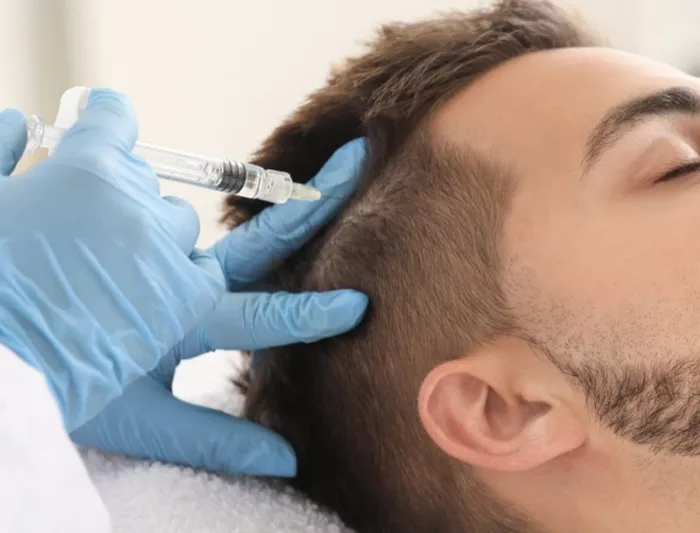Hair transplant surgery is a significant investment in restoring natural hair growth and requires careful post-operative care to ensure optimal results. One common question that arises during the recovery period is whether it’s advisable to spray water on transplanted hair. Let’s delve into this topic to understand the benefits, risks, and best practices for caring for transplanted hair.
Understanding the Healing Process
After a hair transplant procedure, the scalp undergoes a healing process that involves the integration of newly transplanted follicles into the recipient area. During this time, the scalp is sensitive and requires gentle care to promote healing and encourage the growth of new hair.
The Role of Moisture in Hair Transplant Recovery
Moisture and Healing: Proper hydration of the scalp can aid in the healing process by keeping the skin hydrated and reducing the risk of dryness or irritation, which may interfere with follicle growth.
Benefits of Spraying Water:
Maintaining Hydration: Spraying water on the transplanted area can help keep the scalp hydrated, especially in the initial days when the skin might feel tight or dry.
Reducing Crust Formation: Keeping the scalp moist can soften any crusts or scabs that may form post-surgery, making them easier to remove without disrupting the grafts.
Promoting Healing: Moisturized skin is less likely to itch or become inflamed, which can aid in faster healing and minimize discomfort.
SEE ALSO: Is It Painful to Get a Hair Transplant?
How to Safely Spray Water on Transplanted Hair
Use a Gentle Spray Bottle:
Opt for a spray bottle with a fine mist setting to ensure gentle application without causing excessive pressure on the scalp.
Distilled or Bottled Water:
Use distilled or sterile water to avoid any impurities or chemicals that may irritate the sensitive scalp.
Avoid Direct Pressure:
Do not spray water directly onto the transplanted grafts. Instead, aim to mist the surrounding areas lightly.
Frequency and Timing:
Follow your surgeon’s recommendations regarding when and how often to spray water on your scalp. Typically, this may start a day or two after surgery, once your surgeon gives you the go-ahead.
Potential Risks and Considerations
Infection Risk:
While keeping the scalp hydrated is beneficial, excessive moisture or improper technique can increase the risk of infection. Always follow sterile practices and avoid touching or scratching the treated area.
Dislodging Grafts:
Vigorous spraying or rubbing can dislodge newly transplanted grafts. Handle the scalp gently and avoid any rough handling.
Conclusion
In conclusion, spraying water on transplanted hair can be a beneficial part of post-operative care when done correctly and in moderation. It helps maintain scalp hydration, reduces crust formation, and supports the healing process. However, it’s crucial to follow your surgeon’s instructions meticulously and use gentle techniques to avoid any complications. By understanding the role of moisture in hair transplant recovery and adopting proper care practices, you can promote optimal healing and achieve the best possible results from your hair transplant surgery.
FAQs
What to Spray on Transplanted Hair?
After a hair transplant surgery, it’s important to spray a gentle solution on the transplanted hair to aid in the healing process and maintain scalp hygiene. The most commonly recommended solution is saline water or a saline spray. Saline water is a mild, sterile solution that helps keep the scalp clean, reduces crust formation, and promotes healing without irritating the sensitive scalp.
Why Spray Saline Water on Transplanted Hair?
Spraying saline water on transplanted hair serves several purposes:
Keeps the Scalp Clean: Saline water helps to cleanse the scalp gently without disrupting the newly transplanted follicles.
Reduces Crust Formation: It softens any crusts or scabs that may form post-surgery, making them easier to remove during washing.
Promotes Healing: The gentle saline solution aids in maintaining moisture balance on the scalp, which supports the healing process and reduces discomfort.
Can I Wet My Hair After Hair Transplant?
Yes, you can wet your hair after a hair transplant, but it’s essential to do so carefully and according to your surgeon’s instructions. Typically, you can start gently rinsing your hair a day or two after the procedure, depending on your surgeon’s advice. It’s important to avoid vigorous rubbing or scratching of the scalp and to use lukewarm water during the initial days to prevent any irritation.
Does Water Help Hair Transplant?
Water itself doesn’t directly help in the growth of transplanted hair follicles, but proper hydration of the scalp is crucial for maintaining a healthy environment for healing. Hydration helps to keep the scalp moisturized, reduces itching and discomfort, and supports the overall healing process. Using water, especially when combined with saline solution or as part of a gentle cleansing routine, can aid in keeping the scalp clean and promoting optimal conditions for new hair growth.
You May Be Interested In

